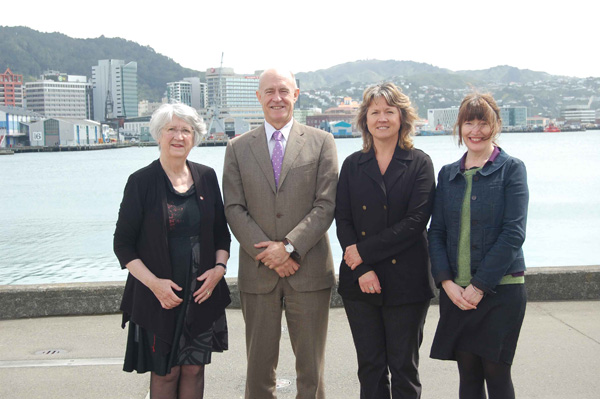Wellington-based charity, the Refugee Family Reunification Trust, has now raised over one million dollars since its inception in 2001. The milestone was officially reached this week, thanks to a symbolic donation made by the United Nations Refugee Agency, UNHCR.

Richard Towle, Regional Representative of the United Nations High Commissioner for Refugees, made the donation this week during a visit to his home country, New Zealand.
Towle said that the amount of money raised by the small charity over the past 12 years was a clear endorsement of the importance of its work in bringing back together families separated by war or persecution.
The Trust is run on an entirely voluntary basis, with no salaried staff and no premises, so 100 per cent of donations go to refugees. The organization helps fund the costs, including immigration and medical fees and air fares, of reuniting refugees with family members already in New Zealand.
Towle said he was delighted to be able to support the Trust in achieving its fundraising milestone, and hoped generous New Zealanders would continue to support its work.
“Despite the barest of resources, the Refugee Family Reunification Trust has achieved – and continues to achieve – exceptional results, helping reunite more than 150 families, many of whom have been through terrible trauma before reaching New Zealand.”
The Trust was launched in 2001 by Amanda Calder, a qualified lawyer, who became aware of the plight many families find themselves in, while providing free legal advice to help former refugees with immigration applications for family members.
Last year it assisted with 52 applications, providing $152,000 towards such costs, including paying airfares to New Zealand for 30 adults and 34 children.
It has helped reunite many married couples, and children with their parents – including a newborn baby girl who was left behind in Ethiopia, and twin girls now living with their mother after six years apart.
Amanda, who still chairs the Trust, said that many had been living in appalling situations in refugee camps.
“Not only do the family members here face language difficulties in negotiating the immigration process, the fees required by Immigration New Zealand, costs for medicals, and the airfares to bring their relatives here are simply beyond their means,” she said.
“It just seemed so very wrong that because of these costs people could not bring their close relatives, including their children, to New Zealand.
“Right now, we have more families we are fundraising to help in this way, so we really appreciate the support of the donors and fundraisers who contribute so much to support our efforts.”